Search
Did you mean: Vulcan?
Search Results
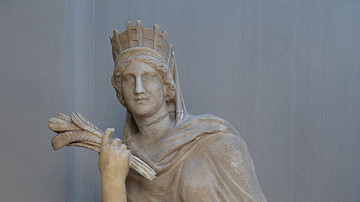
Definition
Tyche
In Greek mythology, Tyche is the goddess and personification of good luck, chance, and fortune. Tyche's popularity grew after the Classical period when many cities and officials across the Greek world and the Mediterranean adopted her as...
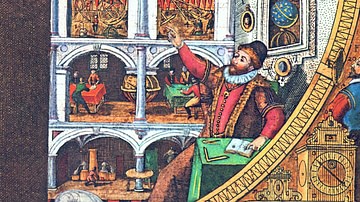
Definition
Tycho Brahe
Tycho Brahe (1546-1601) was a Danish nobleman who made the most significant contribution to our knowledge of astronomy before the telescope arrived. He discovered a supernova, observed the elliptical interplanetary orbit of a comet, updated...
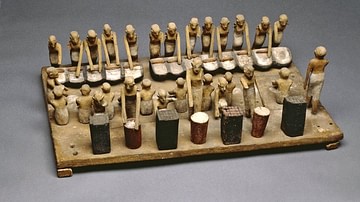
Definition
Beer
Beer is one of the oldest intoxicating beverages consumed by human beings. Even a cursory survey of history makes clear that, after human beings have taken care of the essential needs of food, shelter, and rudimentary laws for the community...

Definition
Easter
Easter is the Christian holiday that celebrates the resurrection of Jesus of Nazareth three days after he died from crucifixion by the Roman magistrate Pontius Pilate (c. 30 CE). Easter Sunday is the culmination of the week-long events that...
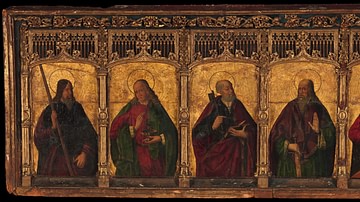
Definition
Acts of the Apostles
The Acts of the Apostles is the story of how the movement that became Christianity began in Jerusalem and spread throughout the Eastern Mediterranean cities of the Roman Empire. It was written by the same author as the third gospel, assigned...
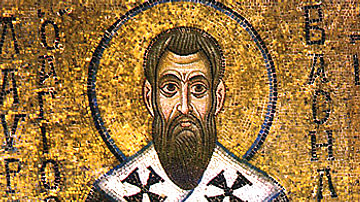
Definition
Basil the Great
Saint Basil (c. 330 - c. 379 CE), also known as Basil the Great and Basil of Caesarea, was a bishop of Caesarea in central Asia Minor who staunchly defended the church against the 4th-century CE heresy of Arianism. Basil's writings on monasticism...
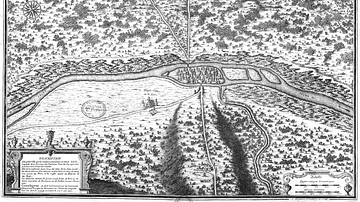
Definition
Lutetia
Lutetia Parisiorum was the capital of the Parisii, a tribe in ancient Gaul. The Parisii were a tribe on the Middle Seine, and Lutetia ("place near a swamp") was one of their main settlements. It was on the south bank of the river. In 53 BCE...

Definition
Childeric I
Childeric I (r. c. 458-481) was a late antiquity king of the Salian Franks during the period of the fall of the Western Roman Empire. Childeric's reign solidified the Salians as a dominant Frankish tribe and helped pave the way for the unification...
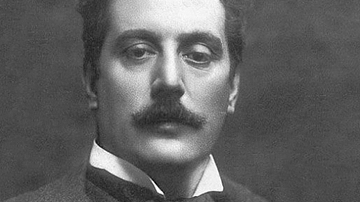
Definition
Giacomo Puccini
Giacomo Puccini (1858-1924) was an Italian composer best known for his operas La Bohème, Tosca, Madama Butterfly, and Turandot. Puccini drew inspiration from a wide range of literary sources, and his late Romantic music with its immortal...
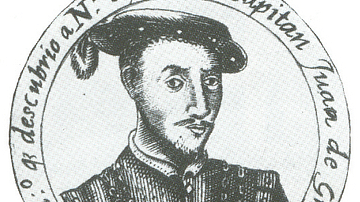
Definition
Juan de Grijalva
Juan de Grijalva (aka Grijalba, 1489-1527) was a Spanish conquistador who explored the eastern coast of Mexico in 1518. His notable achievements included a demonstration that the Yucatán Peninsula was just that and not, as previously thought...